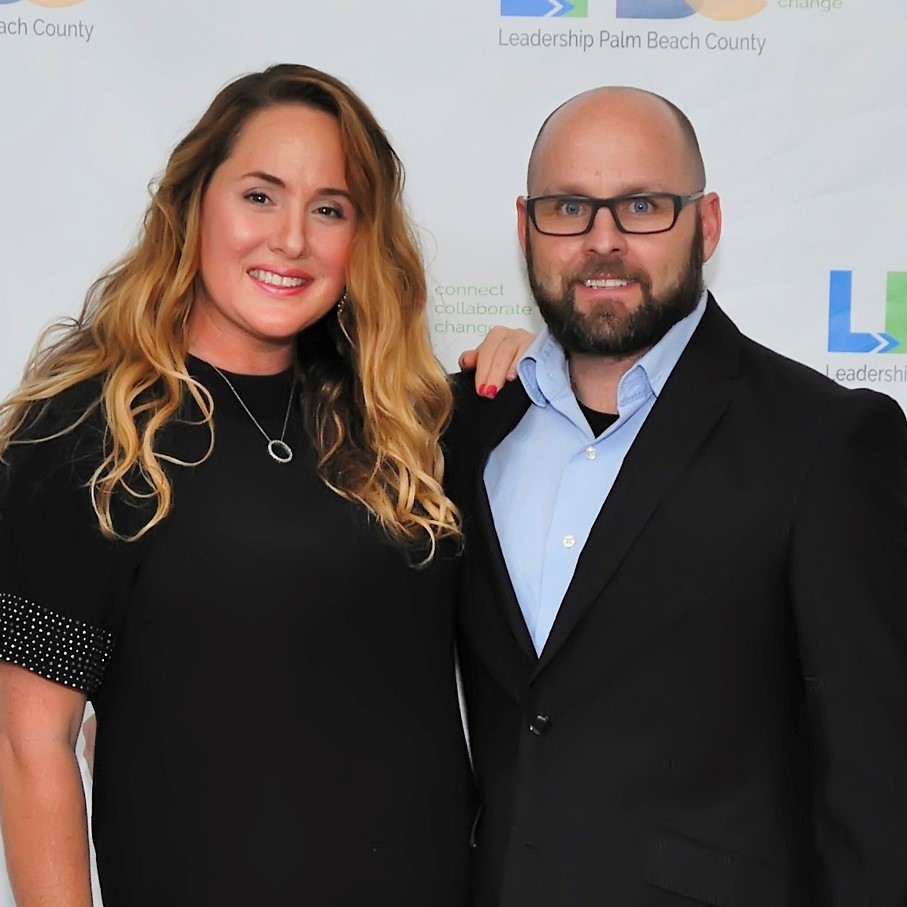RUNNING A BUSINESS with your spouse can be a marriage-destroyer. It can also be a rewarding experience that results in personal and financial success. Successful entrepreneurial couples, however, know that strong communication, respect, and trust are key ingredients to maintaining not just a healthy business, but a fulfilling, long-lasting union.
The Challenges
For starters, complementary skills are important. When Deana and Jason Pizzo (pictured above) founded I.T. Solutions of South Florida, an MSP based in Lake Worth, Fla., in 2004, one significant challenge early on was what they both refer to as “”learning your lanes.”” Her strengths lie in sales, marketing, and operations, which she oversees as CEO. Jason’s strong suit is technology, so he has the role of CIO.
“”Each person has to be strong in a certain area, and it can’t be the same one [for both],”” Deana Pizzo says. These differences are one of the keys to their success, Jason Pizzo believes. Importantly, they both trust the other to handle any issues that arise in their respective domains.
Establishing a healthy balance of power is not always easy, according to Trisha Harp, founder of the Harp Family Institute, an Atlanta-based research and consulting firm focused on entrepreneurial couples. “”When you get married, you get married to be equal-level teammates, and it’s hard enough inside of a marriage to sustain that sense of equity and equality,”” she says. Adding a jointly run business to the mix can blur the lines, mandating clear-cut boundaries on who is responsible for what––and whether one spouse has the final say in the decision making.
If there is a hierarchy in the business, another challenge is, “”How do we separate that from the hierarchy of the household?”” Harp says.
Eric and Lisa Shorr acknowledge some tension around their roles and priorities in the early years of running Secure Future Tech, an MSP based in Warwick, R.I. Eric started the company in 1992 while still a student at the University of Rhode Island, and Lisa signed on as co-owner six years later. (She also runs Shorr Success, a branding and image consulting firm for channel pros.) While Eric respected Lisa’s expertise in branding, marketing, and business development––skills that attracted him to the idea of her being a co-owner in the first place––he didn’t make the time to support her projects.
“”That created friction in our relationship, because I wanted to do things in our business,”” Lisa Shorr recounts. Eric, focused on ticket response and customer service, often put less priority on things like editing Lisa’s press releases. “”I felt like I was spinning my wheels,”” she says.
Eric Shorr concedes that during this period he was in reactive mode, which eased when they hired more employees. He was then able to delegate a lot of the day-to-day tech-related duties to his technicians and block time on his calendar to work with Lisa. “”Before, I thought I needed to be reactive because my clients needed me,”” he says. “”Now I’m more focused on growing the business and working very closely with Lisa to further our marketing and sales efforts.””
While there may be tension from time to time, couples need to present a united front professionally and resolve disagreements in private, Eric Shorr stresses. “”Never have disagreements in front of the team or customers,”” he cautions. Otherwise, you risk creating a toxic workplace.
Deana Pizzo agrees. “”Always be professional in front of your staff. If you need to butt heads, go to lunch, get it out of the office.””
Work-Life Balance
Bringing that discussion home can create work/life balance issues, however. Deana Pizzo says she established two strict rules from the get-go: She and Jason were not to talk about business at the dinner table, or in bed––rules that aren’t always easy to follow, her husband admits. “”We still come home and talk about business, and it’s hard to make that separation because the business is very entwined with our life,”” he says.
At the same time, talking about the business at home has awoken entrepreneurial aspirations in their two children, Gavin and Skylar. (Gavin is currently working on Jason’s team and will soon move over to his mother’s side of the business to learn about operations.) “”I wanted Gavin and Skylar to see what this was like,”” Jason Pizzo says. “”We didn’t hold that back from them, so they understood that it’s a hard road when you go down that path of starting your own company.””
The Fine Print
To make that path less rocky, it’s crucial to be on the same wavelength on all things financial, Jason Pizzo underlines. “”Regardless of whether or not you run a company together, finances are the biggest reason for divorce,”” he says. “”If you don’t have that together, running a company together is not going to work.””
Carl Mazzanti, president of eMazzanti Technologies, an MSP headquartered in Hoboken, N.J., believes that entrepreneurial couples need to create an exit plan for each partner. “”If the firm turns into a lifestyle business or it’s no longer hyper-growth, it’s OK for the other person to pursue a different passion or experience,”” says Mazzanti, who started the company with his wife and CEO, Jennifer Mazzanti, 20 years ago.
The best time to work this out is at the beginning of the business relationship, he advises. “”Just because you’re staying together ’til death do you part doesn’t mean that you have to show up at the same office every day.””
The Perks
For entrepreneurial couples who successfully navigate the challenges of running a business together, there are many upsides too. Eric Shorr notes that one of the biggest advantages is the level of trust. “”There is no one that I trust on this earth more than Lisa, and so I know that if I need her for something, or something has to get done, I can give it to her and I don’t even think about it twice,”” he says.
Deana Pizzo agrees that having a partner she can fully trust is a benefit. She also enjoys knowing that her partner will pick up the slack––and vice versa––when life presents challenges that require one individual to spend less time working on the business, and more time attending to personal matters. “”Being able to have a partner that has the same vested interests, I think, is the biggest advantage to a husband-and-wife team,”” she says.
It’s also rewarding to celebrate what both spouses have created, notes Eric Shorr. “”We have a real sense of accomplishment; we look at our company and know that we’ve done that together,”” he says. “”I feel very proud of us for everything that we’ve accomplished and are still accomplishing––and we’ve got a lot more to do. But it’s a huge benefit to work and accomplish something together.””















